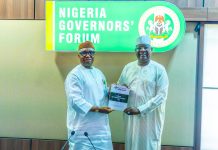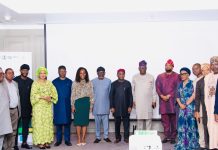The digital economy as we know it refers to the economic activities enabled by digital technologies that connect people, businesses, and processes
With a shift away from physical commerce, consumers are increasingly taking their daily activities online. This shift has resulted in new opportunities for emerging digital entrepreneurs to reap the dividends from digital and grow in the digital economy.
The digital economy as we know it refers to the economic activities enabled by digital technologies that connect people, businesses, and processes. It’s the hyper-connectiveness of this economy that allows the ecosystem to grow, and redefines how typical businesses are structured. But how exactly? Through the opportunities created by digital tech, including the Internet, the cloud, mobile technology, and the Internet of Things (IoT).
It’s these emerging technologies that are disrupting traditional business models, leading digital transformation, and redefining how businesses interact with customers and how customers receive and experience services and goods. Being able to thrive in a digital economy will be key to ensuring a competitive edge and business sustainability.
The role of connectivity and cloud solutions in the digital economy
There’s no denying that customer expectations are changing around the world, and we’ll be seeing this increasingly in Africa too. Whether your customers are businesses or consumers, they are becoming more reliant on Internet connectivity to make purchases, drive business outcomes, and stay connected with the world around them. At the core of the digital economy is connectivity, and reliable connectivity is a prerequisite for joining the digital economy.
Enabled by connectivity, cloud technologies allow businesses to streamline their processes in cost-effective, reliable ways, and they offer the flexibility required to scale operations and adjust to demand.
For aspiring digital entrepreneurs in particular, connectivity and cloud solutions are critical as they enable them to collaborate and access resources from any location with a secure network – meaning they can work effectively without having to invest in a physical office space. This reduces start-up costs, providing small businesses and start-ups alike the opportunity to compete with larger companies that have bigger budgets, ultimately leveling the playing field. Thus, improving access to connectivity is key to developing the digital economy.
Emerging digital trends and opportunities
The digital economy enables new business models, but it also gives more traditional companies the opportunity to increase productivity and enhance customer experience through various digital solutions. Social media, mobile computing, data analytics, the cloud, IoT, and cyber solutions can lead to new market opportunities, remote service provision, faster time-to-market, higher revenue streams, and streamlined processes.
We know that customers desire engagements with brands that are seamless, omnichannel, direct, contextual, and above all else, personalised. Something as simple as social media, for instance, can help entrepreneurs connect with their audience base on a personalised level, giving them unprecedented access to consumer feedback. When combined with data analytics tools that help companies predict consumer needs from online activity, this gives businesses a unique opportunity to offer consumers exactly what they want, when they want it.
Entrepreneurs can help change the way products and services are managed, optimised, and deployed, as well as how customers perceive their brands, fostering brand loyalty. If we are to develop digital entrepreneurship, it is critical to ensure that more aspiring entrepreneurs are exposed to emerging tools and trends.
Africa is full of examples of companies that are harnessing the digital economy. Front-runner M-Pesa has made remarkable achievements in the mobile communication industry. Its investment in inclusive infrastructure to help launch a microfinance product and lower consumer barriers to banking entry has been a true win for Kenya, and its people. More recently, Kobo360, a logistics start-up that serves as a marketplace for shippers and transporters, is giving companies access to a flexible fleet of over 17 000 drivers and trucks that operate in Nigeria, Ghana, Kenya, and Togo. In South Africa, RapidDeploy uses cloud-based software to help public safety officials to reduce emergency response times.
Thriving in the digital economy
There are various ways for entrepreneurs to join the digital economy, starting with moving past traditional business structures and re-aligning value creation. However, this doesn’t necessarily mean rethinking all aspects of your offering, but rather focusing on switching from physical to digital interactions and operations that will enable new business and service models.
What’s needed is an integration strategy that takes existing physical structures and processes into account and integrates them with digital systems. Omnichannel customer engagement, for example, allows entrepreneurs to visualise the actual lifecycle of its customers and helps identify gaps or weaknesses. It gives entrepreneurs a unique chance to identify opportunities, respond quickly, and thrive in this new economy.
It’s this level of agility that will help entrepreneurs create and deliver services and goods more in tune with their customers’ wants and needs, helping to grow the digital economy, and Kenya’s wider economy along with it.
In this new, highly competitive digital world, entrepreneurs need to assess whether the services they are offering are truly adding value in the most efficient way possible. As the digital economy grows, we will see more entrants using a myriad of digital tools to bring more services and goods to market faster. Staying competitive in this ecosystem requires a combination of connectivity, innovative thinking, and smart partnerships to help differentiate your business. But as international giants, such as Amazon and Alphabet, have shown, for those companies that do get it right, the digital economy offers unprecedented opportunities.
Tonny Tugee, SEACOM East Africa MD








